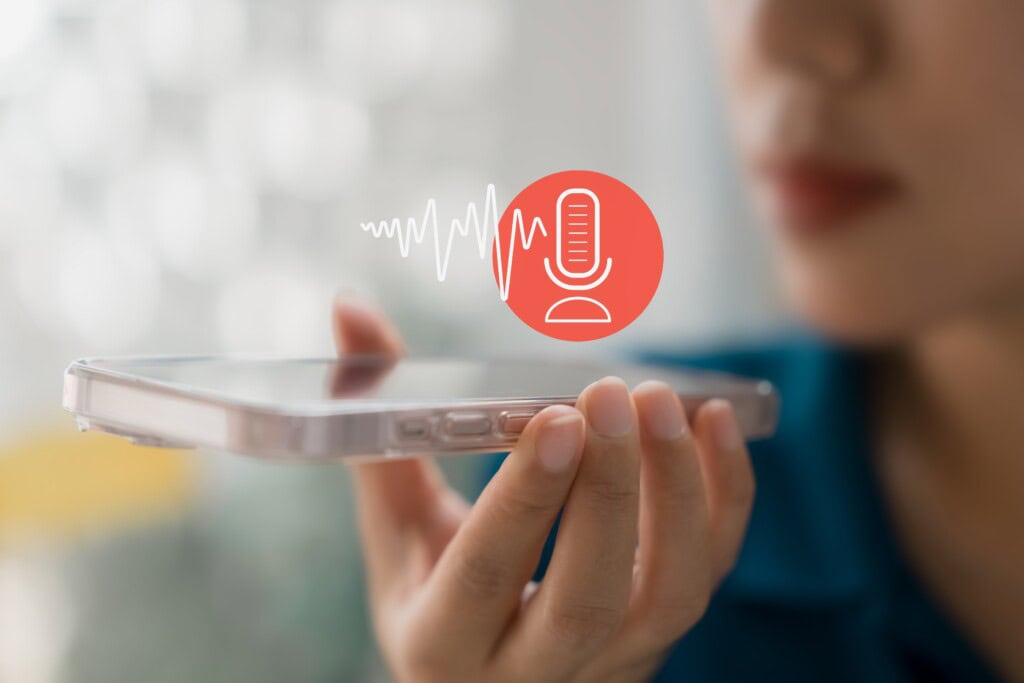AI Interviews for Qualitative Research: How to Use AI Agents for Faster In-Depth Customer Feedback

In today’s fast-paced digital economy, businesses can’t afford to wait weeks for customer feedback. Speed matters—but so does depth. That’s why AI interviews for qualitative research are becoming an essential tool for modern insights teams.
With the help of platforms like Discuss.io, AI interview agents now empower brands to collect authentic, detailed feedback from customers in hours instead of days, all without sacrificing the human element that makes qualitative research meaningful.
So, how do AI-led interviews actually work, when should you use them, and how do they compare to traditional methods?
What Are AI Interviews—and How Do They Work?
AI interviews leverage natural language processing (NLP), large language models (LLMs), and smart automation to simulate a one-on-one conversation between a participant and an AI-powered virtual moderator. These virtual agents can ask questions, follow up based on participant answers, and probe deeper when necessary.
Discuss.io’s new AI Interview Agent is at the forefront of this innovation. The Interview Agent conducts self-paced interviews, meaning participants can respond at their own pace, in their own environment, and on their own time. This reduces bias, increases accessibility, and yields richer responses than time-pressured live calls.
Key features of Discuss’ Interview Agent include:
- Dynamic question routing based on participant responses
- Natural back-and-forth dialogue that simulates live human interviews
- Rapid turnaround with detailed transcripts and sentiment analysis available within hours
- Integration with Discuss’ end-to-end research platform for seamless workflow
By removing time constraints and allowing participants to reflect before responding, AI interviews make it easier to get thoughtful, in-depth feedback at scale.
When Should You Use AI-Led Interviews?
There’s no one-size-fits-all answer, but AI-led interviews are ideal for situations where speed, scale, and consistency matter.
The best use cases include:
- Early-phase exploratory research: Understand customer perceptions before launching a product.
- Pre- and post-campaign analysis: Gauge real-time sentiment to adjust messaging or measure impact.
- Global insights: Interview participants across multiple time zones without scheduling headaches.
- Audience segmentation: Quickly test assumptions and fine-tune your targeting based on rich qualitative input.
AI interviews shine in high-volume or repetitive scenarios, where traditional moderation would be too time-consuming or expensive. They’re particularly effective for supplementing live research, acting as a first-pass tool that uncovers themes and emotional drivers before conducting more targeted human-led follow-ups.
How AI Interviews Compare to Traditional Qualitative Methods
While traditional qualitative methods—like in-depth interviews (IDIs), focus groups, or ethnographic studies—offer nuanced insights, they come with trade-offs:
| Method | Speed | Scalability | Depth of Insight | Cost |
| AI Interviews | Hours | High | High | Lower |
| Traditional IDIs | Days to weeks | Low | High | Higher |
| Focus Groups | 1-2 weeks | Medium | Medium-High | High |
| Surveys | Fast | High | Low-Medium | Low |
AI interview agents bridge the gap—delivering qualitative depth with quantitative efficiency.
They don’t replace human moderators but rather extend their capabilities. A skilled human researcher still designs the discussion guide, interprets findings, and provides context. AI just takes care of the execution—fast, consistent, and bias-minimized.
In fact, Discuss’ Interview Agent doesn’t just deliver raw transcripts—it interprets tone, identifies sentiment, and flags key themes, helping human teams jump straight to the insight phase.
Real-World Impact: Faster Insights, Smarter Decisions
Time is a competitive advantage. According to McKinsey, data-driven companies are 23 times more likely to acquire customers and 9 times more likely to surpass their competitors in customer loyalty. But insights delayed are insights denied. In rapidly evolving markets, waiting days—or even weeks—for customer feedback can result in missed opportunities, wasted ad spend, or product features that fall flat.
The Discuss Interview Agent offers brands the ability to:
- Cut research timelines from days to hours
Instead of coordinating schedules, waiting on transcripts, or manually tagging responses, teams can access full interviews and AI-analyzed summaries often within the same business day. - Gather input from more participants, more quickly
By eliminating the bottlenecks of scheduling and moderation, researchers can include broader demographics, larger sample sizes, and harder-to-reach audiences in their studies. - Reduce the bias introduced by live moderators or group settings
Participants can speak freely in a self-paced, one-on-one setting—without the social pressures that sometimes skew focus group dynamics or live interviews. - Generate deeper understanding across customer segments and geographies
AI interviews scale easily across markets and languages, unlocking insights from global audiences that might otherwise be overlooked.
By combining the speed of automation with the depth of qualitative research, AI interviews enable faster iteration, tighter product-market fit, and more effective messaging. Brands don’t just move faster—they move smarter, with customer voices guiding every step.
Why Human Researchers Still Matter
Even the most advanced AI can’t replicate human intuition, empathy, or contextual judgment. AI interviews aren’t a replacement—they’re an enhancement. While AI interview agents can handle the logistics, ask intelligent follow-ups, and synthesize responses quickly, it’s the human researchers who give meaning to the data.
AI agents can probe, listen, and summarize—but humans still guide strategy, refine questions, and translate findings into actionable insights. Researchers bring cultural nuance, brand knowledge, and industry context that no algorithm can replicate. They can recognize subtle shifts in tone, unexpected patterns, or emerging themes that an AI might overlook or misinterpret.
Think of AI as your co-pilot. It handles the repetitive work so you can focus on the creative, strategic tasks that matter most—like crafting compelling narratives, influencing stakeholders, and shaping better customer experiences. With the right balance, AI empowers teams to do more of what they do best: thinking critically, asking better questions, and connecting the dots.
Final Thoughts: A Smarter Way to Do Qualitative Research
In an era where speed, depth, and cost-efficiency are all essential, AI interviews for qualitative research are not just a trend—they’re the new standard.
With Discuss.io’s AI Interview Agent, brands can finally achieve the elusive trifecta of qualitative research: fast, deep, and scalable insights. And they can do it while preserving what matters most: the human element.
Whether you’re an insights leader, brand strategist, or UX researcher, now is the time to rethink your approach to customer conversations. AI interviews aren’t here to replace humans. They’re here to help us understand humans better.
Ready to unlock human-centric market insights?
Related Articles

The Four Lies We Tell Ourselves About AI Interviews (And What Actually Works)
Look, AI-moderated interviews are having a moment. Everyone’s talking about them. Some people are overselling them. Others are writing them…
Look, AI-moderated interviews are having a moment. Everyone’s talking about them. Some people are overselling them. Others are writing them…

Holiday Campaigns Meet Agentic AI: How Intelligent Agents Drive Last-Minute Creative Testing
Every marketer knows the feeling — it’s November, the holidays are around the corner, and your campaign calendar is bursting….
Every marketer knows the feeling — it’s November, the holidays are around the corner, and your campaign calendar is bursting….

Research Reinvented: Forrester on why researchers won’t be replaced by AI
This is the last article in our five-part series based on the webinar we hosted with Forrester and Quadrant Strategies,…
This is the last article in our five-part series based on the webinar we hosted with Forrester and Quadrant Strategies,…



